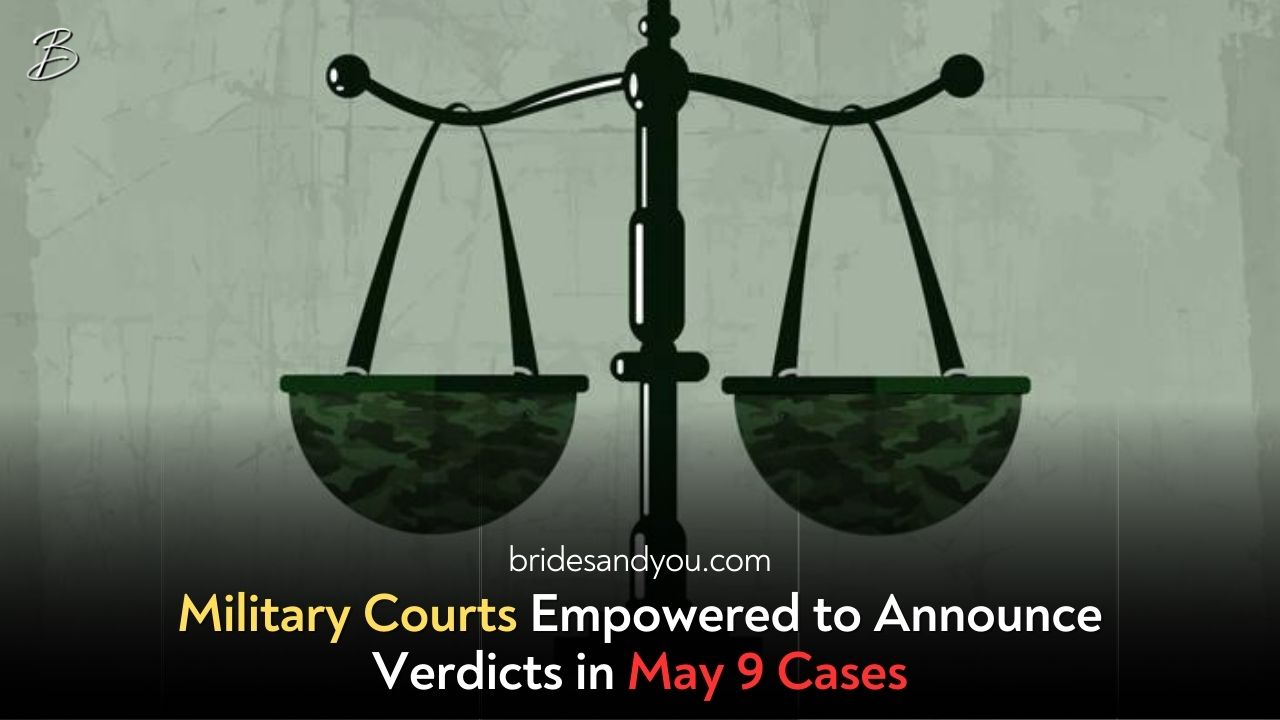Now Reading: Supreme Court Allows Military Courts to Announce Verdicts in Civilian Cases: Analyzing the Legal and Humanitarian Implications
-
01
Supreme Court Allows Military Courts to Announce Verdicts in Civilian Cases: Analyzing the Legal and Humanitarian Implications
Supreme Court Allows Military Courts to Announce Verdicts in Civilian Cases: Analyzing the Legal and Humanitarian Implications

In a significant legal development, the Constitutional Bench (CB) of Pakistan’s Supreme Court has conditionally permitted military courts to announce verdicts in 85 cases of civilians accused of attacking military installations on May 9, 2023. This decision, issued by a seven-member CB led by Justice Aminuddin Khan, comes amidst ongoing debates about the role of military courts in civilian trials and the broader implications for justice in Pakistan.
Background of the Case
The events of May 9, 2023, marked a turning point in Pakistan’s legal landscape, as civilians were accused of attacking military installations following the arrest of PTI founder Imran Khan. These cases were subsequently handed over to military courts, sparking controversy and raising questions about constitutional rights and the independence of the judiciary.
On October 23, 2023, a five-member bench of the Supreme Court declared the trials of civilians in military courts unconstitutional. However, this decision was challenged by the federal government through intra-court appeals (ICAs). On December 13, 2023, a six-member larger bench of the Supreme Court suspended the October 23 judgment and allowed the continuation of military trials under certain conditions.
The latest CB decision modifies this interim order, allowing military courts to announce verdicts for the accused whose trials have been completed, while ensuring adherence to the jail manual for remissions and appeals.
Key Highlights of the Verdict
- Conditional Announcement of Judgments: The CB has permitted military courts to announce their verdicts for 85 civilians facing trial, subject to the final determination of appeals. Accused individuals eligible for release through remissions will be freed immediately, while others will be transferred to regular jails.
- Rights of Appeal: Convicted individuals retain the right to challenge their sentences before higher forums, ensuring some level of judicial oversight.
- Application of Jail Manual: The verdict emphasizes adherence to the jail manual for remissions and proper handling of prisoners, ensuring compliance with procedural standards.
Legal and Human Rights Concerns
The decision has sparked mixed reactions among legal experts and human rights advocates. Former additional attorney general Tariq Mahmood Khokhar criticized the verdict for lacking detailed legal reasoning and failing to uphold international law standards. He argued that prolonged incarceration without timely judicial resolution could cause irreparable harm to both acquitted and convicted individuals.
In contrast, Hafiz Ahsaan Ahmad defended the decision, stating that it aligns with the Pakistan Army Act, 1952, and does not infringe on judicial independence or fundamental rights. He highlighted that the convicts’ rights to appeal and access to ordinary jails mitigate potential concerns.
Implications for Pakistan’s Legal System
This verdict underscores a growing debate about the balance between national security and individual rights. Critics argue that trying civilians in military courts undermines the rule of law and international obligations, while proponents emphasize the need for swift justice in cases involving national security threats.
The Supreme Court’s delay in resolving these cases has drawn criticism, with experts calling for expedited proceedings to ensure fairness and justice. The upcoming hearings after the winter vacations will likely shape the future of civilian trials in military courts and their compatibility with Pakistan’s constitutional framework.
Looking Ahead
As the tenure of the current bench ends on January 6, 2024, the legal fraternity and the public await further developments. Will the judiciary uphold its commitment to justice, or will this decision set a contentious precedent for future cases? Only time will tell.













